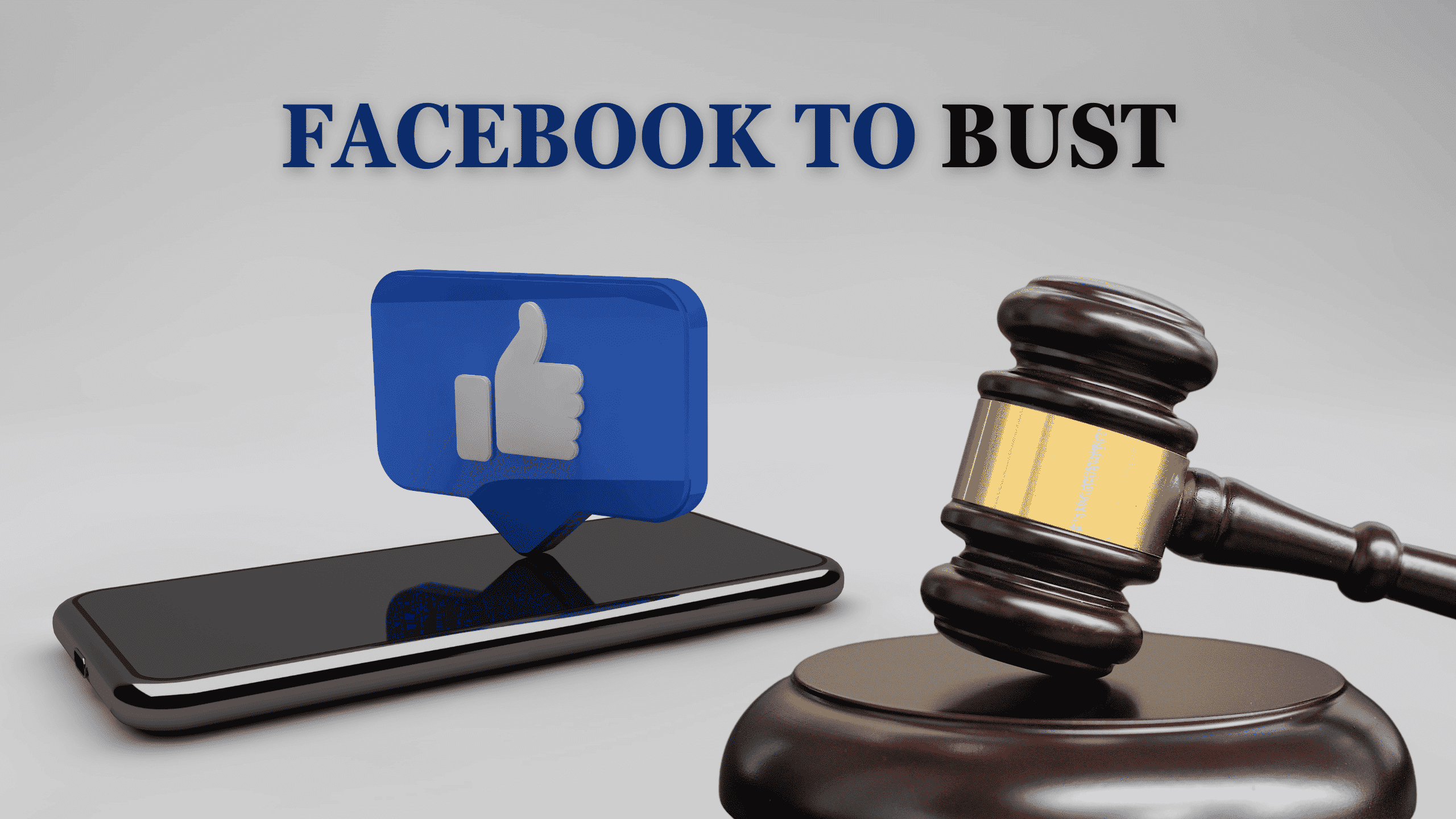Facebook to Bust: How Social Media Impacts Your Divorce Proceedings

Social Media and Divorce
Social media is here to stay, but an increasing body of research seems to point to data that social media has a negative impact on relationships and marriages. In fact, social scientists believe that social media usage may lead to marital problems, conflicts, jealousy, infidelity, and ultimately divorce. Other studies show that people who do not regularly engage in social media are happier in their marriage.
The publication, Cyberpsychology, Behavior and Social Networking, a premier peer-reviewed journal for authoritative research on understanding the social, behavioral and psychological impact of today’s social networking practices (including Twitter and Facebook), found that people who use Facebook more than once an hour are more likely to “experience conflict with their romantic partners.” There are several other recognized studies that confirm this conclusion.
Social media allows a concerned spouse to seek out information about the interactions of a significant other. This can lead to increased jealousy and conflict in a relationship. In fact, researchers have found that the more a person examines their partner’s Facebook activity, the more that person reports jealousy and mistrust.
Unfortunately, suspicions about a partner’s social media interactions are often warranted. Ten percent of adults admit to hiding messages and posts from their significant other, and another ten percent admit to having secret accounts. One in three divorces now start as an online affair.
With smartphones and social media apps, it’s never been easier for unhappy spouses to look for a new relationship, contact an ex, or seek out a fling. Many of the users of relationship sites are married. Sites like AdultFriendFinder and Ashley Madison even cater to married people looking for affairs.
So, we’ve shown how destructive social media can be in relationships, but how could it impact your divorce proceedings?
Impact of Social Media on Massachusetts Divorce Proceedings
There are many examples of the negative consequences of injudicious social media use. When it comes to divorce, the consequences can have very real consequences! Comments and pictures can influence divorce decrees, child custody disputes, and spousal support decisions.
Social media postings can be construed by a judge or jury as a source of evidence. You should be aware that the attorney representing your spouse will analyze your social media accounts for incriminating evidence. For example, photos of an extravagant vacation to Paris or the purchase of a new car may significantly undermine a claim of financial hardship. Photos of you doing shots in the sports bar as the hometown team hits a homerun run may raise concerns about your parenting abilities and good judgment. Even for posts and photos that may seem innocuous to you, your spouse and his or her attorney are likely scrutinizing everything in order to make an argument for a reduction in spousal support or to obtain custody of the children.
Social Media and Child Custody
Child custody cases can get intense, so you can expect that your social media accounts will be avidly scoured by your spouse, your spouse’s attorney, and perhaps even the law clerk and judge assigned to your case. Everything will be scrutinized with an eye on your parenting skills, judgment (or lack thereof) and suitability as a caretaker. Photos of you consuming alcohol, or in an alcohol-laden environment, even in a seemingly benign context, may generate scrutiny and judgment. And certainly, any picture or posts that could be construed to show impulsive or dangerous conduct on your part may have severe ramifications for your child custody case.
Social Media and Spousal and Child Support
While the court is considering asset division and spousal support, social media postings may provide evidence of undisclosed assets, hidden income, or lavish spending. This type of evidence can undermine claims in relation to your financial situation. If the judge has reason to believe that you are living a more high-income life because of luxurious posts on social media, they may view your case with greater suspicions than they otherwise would have.
Social Media and Privacy Concerns
To best protect yourself throughout the Massachusetts divorce process and/or child custody proceedings, our Hanover divorce attorney strongly recommends that you refrain from posting anything at all. In a contentious proceeding, the other side will certainly try to take advantage of your social media posts.
It can often be hard to tell who stands with you among your friends and family during this difficult time. Even with strict privacy settings, information can be accessed or leaked to your mutual friends and acquaintances and even investigators hired by the other side.
Do’s and Don’ts of Social Media During Divorce Proceedings
Our strongest recommendation is to stop using social media at this time. We know, it can be hard, especially when you want to feel connected to the world rather than isolated during a difficult process like divorce. Effectively refraining from social media use could have long-lasting impacts on your life and on your children’s lives. To that end, we have created a list of do’s and don’ts to help you navigate social media throughout your family court process.
Do:
- Listen to your lawyer and follow their advice (you hired them for a reason!)
- Change your social media passwords and set up strict privacy controls
- Delete posts or images that could negatively affect your case, including posts or pictures showing you engaging in behavior that could be construed as implying substance abuse, excessive partying, frivolous spending, or lack of good judgment. Look at your posts as if you were a third party trying to find fault in each image. If you can think of a negative light to show these images in, then chances are your spouse and their attorney can as well.
- Tell your friends and family you are divorcing, and ask them not to post anything about you, your spouse or your children
- Remove your spouse and his/her friends from your social media pages
- Make every effort to remain civil on social media (and in person) with your spouse
Do Not:
- Post any pictures or posts that allow for negative interpretations, even if you believe the picture or posts to be benign
- Make negative comments about your spouse (or that could be interpreted as referring to your spouse)
- Brag about new purchases or financial enhancements in your life, including promotions, consumer goods, or lavish events or trips
- Post anything that could possibly represent you in a light that others might view as showing bad judgment or negative parenting skills
- Let your friends tag you in photos that could be misconstrued
Contact Your Hanover Divorce Attorney
Divorce is difficult and raises many tough issues for the entire family. Here at O’Connor Law, we try to help you work things out with your spouse with compassion and empathy, but when that doesn’t work, we fight hard for you. Contact a Hanover divorce attorney at O’Connor Family Law today at 774-314-4725.
About the Author

Attorney Adam Sloane has a rock-solid record of tearing down false allegations and fighting for both father’s and mother’s rights in the Massachusetts family court system. If you’re getting a divorce, you need a level-headed advocate that knows how to push for what matters most and work towards amicable agreements when possible.
100% of our attorneys at O’Connor Family Law have personal or familial experience with family law issues which means that we know what it’s like to deal with a difficult ex because we’ve been there.*
*at time of survey


